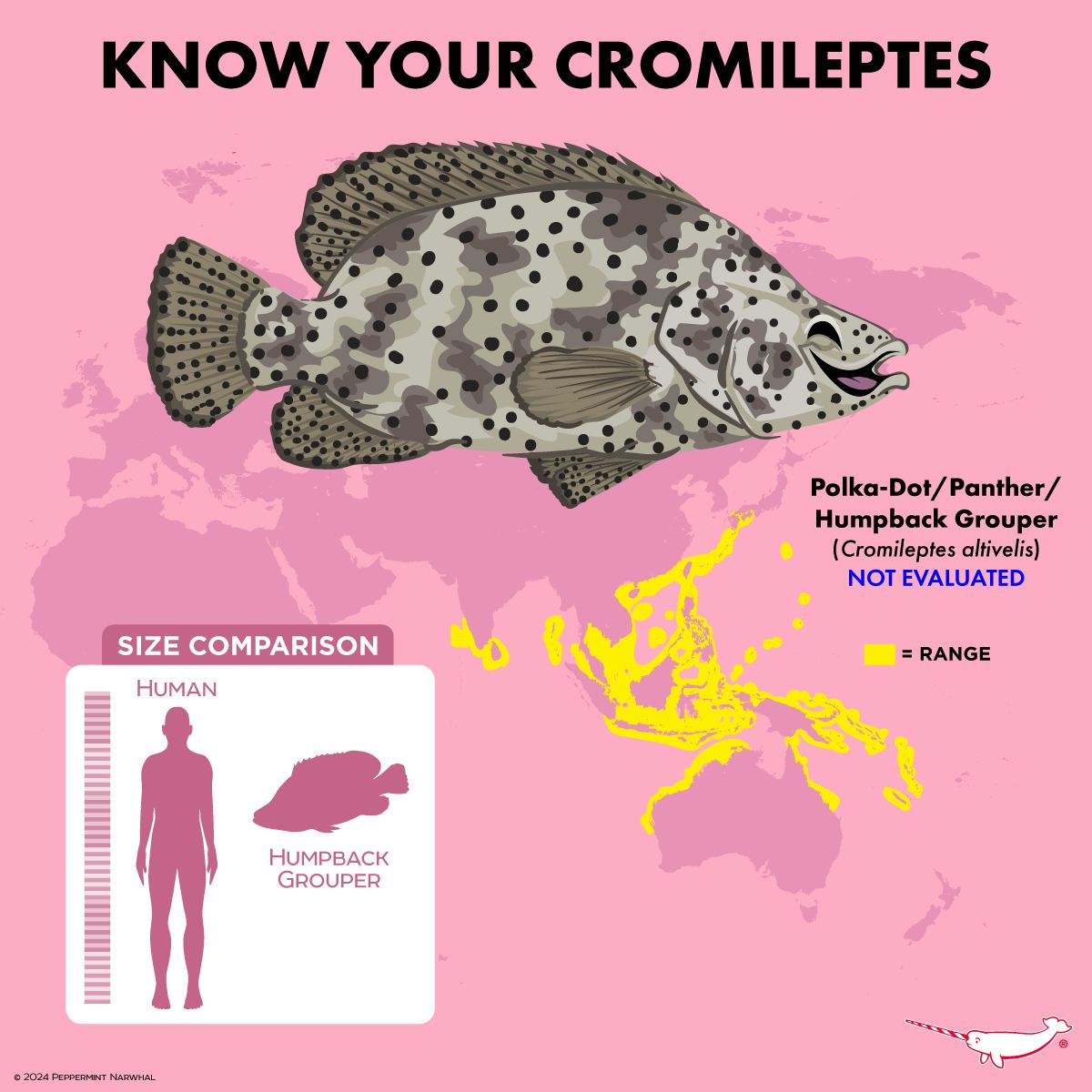– The significance and diversity of the Cromileptes species, particularly focusing on the Polka Dot Grouper.
– Understanding the habitat and distribution of Cromileptes altivelis in the Indo-West Pacific region.
– Conservation challenges facing the Polka Dot Grouper and strategies for its protection.
– The unique breeding habits and life cycle of the Cromileptes species.
– The importance of public awareness and the role of educational initiatives in wildlife conservation.
The Cromileptes species, specifically the Polka Dot Grouper (Cromileptes altivelis), is a fascinating subject for study and conservation within marine biology. This solitary species, recognized by its distinctive polka-dotted pattern and protracted sloping head, occupies a unique niche in the coral reefs and rocky bottoms of the central Indo-West Pacific region.
Cromileptes altivelis’s distribution stretches across a wide geographical area, including waters off Thailand, Indonesia, and the Great Barrier Reef. Their preference for reef-associated environments makes them susceptible to habitat degradation and the impacts of climate change, posing significant challenges to their conservation. Pollution, overfishing, and coral bleaching are principal concerns that threaten their survival, necessitating concerted efforts for their protection.
Conservation strategies for the Polka Dot Grouper require a multifaceted approach. Establishing marine protected areas (MPAs) provides a refuge for these species, allowing populations to replenish and thrive away from human disturbances. Sustainable fishing practices and enforcing fishing quotas are critical to preventing overexploitation. Public awareness campaigns and educational programs are pivotal in fostering appreciation and understanding of the Polka Dot Grouper’s ecological value, encouraging community participation in conservation efforts.
Cromileptes altivelis’s breeding habits offer additional intrigue. Characterized by a complex life cycle, these groupers undergo a distinctive phase called protogynous hermaphroditism, during which individuals can change sex from female to male during their lifespan. While ensuring genetic diversity, this unique reproductive strategy complicates their conservation, as alterations in population structure and sex ratios can impact breeding success.
It is vital to promote public awareness and education about the Polka Dot Grouper and its habitat. Initiatives that introduce these fish and their ecological significance to a broader audience can inspire a collective commitment to marine conservation. Supporting projects and campaigns focused on safeguarding monotremes and other endangered species can contribute significantly to this cause.
To adequately protect and conserve the Cromileptes species, embracing a holistic approach that includes research, habitat protection, sustainable practices, and public engagement is essential. By understanding the intricate dynamics of their ecosystems, we can develop more effective conservation strategies that benefit the Polka Dot Grouper and help preserve our oceans’ rich biodiversity. Engaging with wildlife and environmental organizations, supporting conservation efforts, and cultivating an ethic of responsibility toward our planet can make a profound difference in the fight against biodiversity loss and climate change.
*****
Source Description
Happy Polka-Dot Day!
To celebrate, we thought it was time for you to Know Your Cromileptes
Cromileptes contains only one species, the Polka Dot Grouper (Cromileptes altivelis). Many names know it, including the Humpback Grouper, Panther Grouper, Panther Fish, and Barramundi Cod. It is found in tropical waters of the central Indo-West Pacific region. It is distinguished by its polka-dotted pattern and long sloping head. Now You Know Your Cromileptes!
KICKSTARTER MAKE 100 – MONOTREMES
A new collectible enamel pin series features the world’s only egg-laying mammals, the monotremes, including the platypus and echidnas.
Pledge Now! – https://rb.gy/0lw7he
Search “Monotremes” or “Peppermint Narwhal” on Kickstarter.
The campaign runs now through Feb. 4, 2024.
Shop www.peppermintnarwhal.com.
Last Chance – 2024 Calendar will sell out soon!!!


